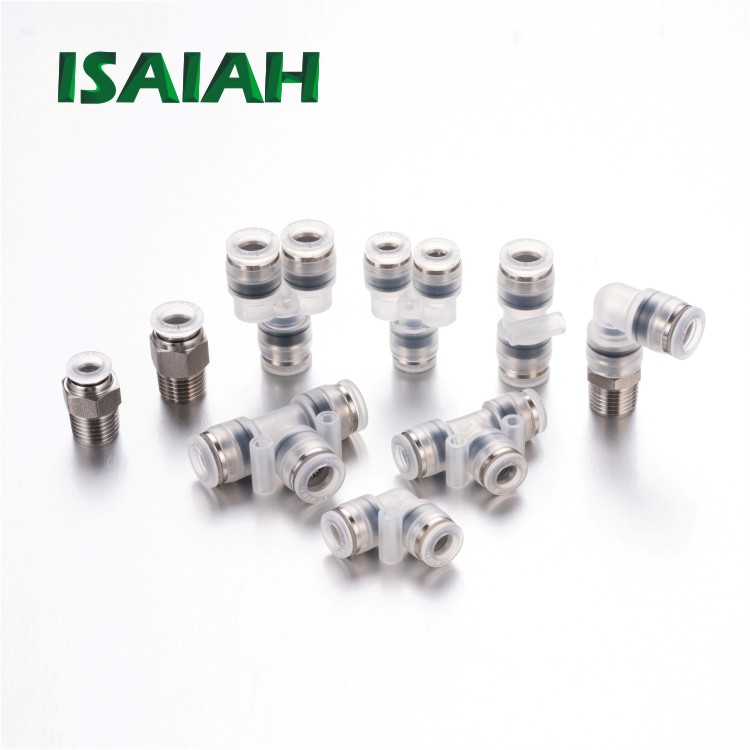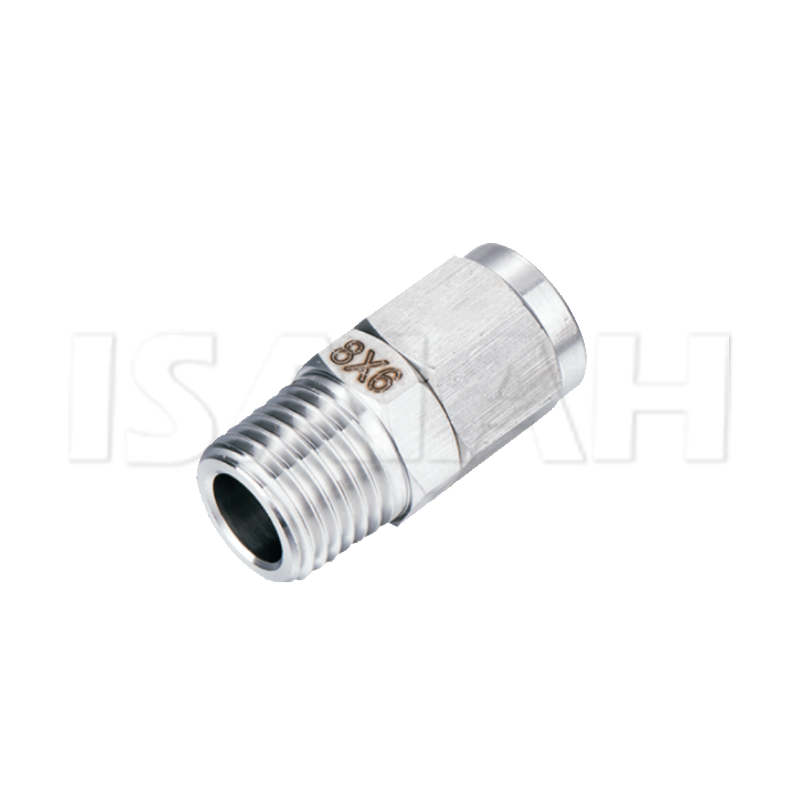In modern industrial applications, the demand for clean, durable, and highly reliable piping solutions has grown exponentially. Industrial processes today often involve the transfer of corrosive chemicals, high-purity liquids, or sensitive gases, where even minimal contamination can lead to significant operational issues. PP Resin Clean Fittings have emerged as a critical component in such environments, offering a combination of chemical resistance, mechanical stability, and lightweight design.
These fittings are especially valued in industries where system cleanliness, contamination control, and long-term reliability are paramount. The adoption of PP resin clean fittings enables engineers and maintenance teams to design efficient piping networks that minimize downtime, reduce maintenance costs, and enhance operational safety.
This article provides a comprehensive overview of PP resin clean fittings, focusing on their key features, technical advantages, broad applications, installation and maintenance guidance, and essential FAQs. Understanding these factors allows professionals to make informed decisions when selecting piping components for sensitive industrial applications.
What Are PP Resin Clean Fittings?
Definition
A PP Resin Clean Fitting is a specialized piping component made from polypropylene (PP), designed for fluid systems requiring high purity, chemical resistance, and mechanical stability. Polypropylene is a thermoplastic polymer known for its excellent chemical inertness, lightweight properties, and durability. By utilizing this material, PP resin clean fittings can maintain integrity in demanding industrial environments without risk of corrosion or contamination.
These fittings are widely used across various sectors, including chemical processing, pharmaceutical production, food and beverage industries, semiconductor manufacturing, and pneumatic systems. Their compatibility with high-purity environments ensures that fluid systems remain uncontaminated, supporting compliance with stringent industry standards.
Difference from Conventional Fittings
PP resin clean fittings stand apart from traditional metal or PVC fittings in several critical ways:
Material Composition: Constructed from high-grade polypropylene, often enhanced with additives to improve impact strength, heat resistance, and dimensional stability.
Clean Design: The fittings feature smooth inner surfaces and precise tolerances, minimizing the risk of particle accumulation, bacterial growth, or chemical residues.
Versatile Connections: Available in multiple connection formats such as push-to-connect, threaded, and flange connections, allowing seamless integration into various piping systems.
Common Types and Specifications
PP resin clean fittings come in diverse configurations to suit different piping layouts:
Elbow Fittings (90° and 45°): Enable fluid redirection with minimal pressure loss.
Tee Fittings: Facilitate fluid distribution to multiple branches.
Reducers and Couplers: Provide compatibility between different pipe diameters while maintaining system integrity.
End Caps and Plugs: Seal piping ends to prevent contamination or leakage.
Quick-Connect Fittings: Designed for pneumatic and chemical systems that require rapid assembly and disassembly.
Each type is engineered to meet rigorous specifications for dimensional accuracy, surface finish, and chemical compatibility.
Key Features of PP Resin Clean Fittings
High Chemical Resistance
One of the standout features of PP resin clean fittings is their exceptional chemical resistance. These fittings can withstand a broad spectrum of corrosive substances, including acids, bases, and organic solvents, without degradation or compromise of mechanical properties.
This resistance provides multiple benefits:
Extended Service Life: Fittings maintain structural integrity even in harsh chemical environments.
Enhanced Safety: Reduced risk of chemical leakage and system failure.
Minimized Contamination: The chemical inertness prevents reactions that could introduce impurities into the fluid stream.
Material | Resistance to Acids | Resistance to Alkalis | Resistance to Organic Solvents |
PP Resin | Excellent | Excellent | Good |
PVC | Good | Moderate | Poor |
Stainless Steel | Moderate | Good | Good |
Nylon | Moderate | Poor | Moderate |
Compared to metal or nylon fittings, PP resin clean fittings consistently outperform in environments requiring both chemical stability and system purity.
Lightweight and Easy Installation
Another key advantage of PP resin clean fittings is their lightweight nature, which simplifies handling, installation, and maintenance. Being significantly lighter than metal alternatives, these fittings reduce the physical effort required during assembly and make retrofitting or modifications more efficient.
Benefits of lightweight construction include:
Reduced Labor Costs: Easier to transport and position, minimizing the need for heavy lifting equipment.
Faster Installation: Streamlined fitting processes using push-to-connect or threaded designs.
Lower Structural Load: Particularly beneficial in complex piping networks or elevated installations.
Installation options are highly versatile:
Push-to-Connect Fittings: Enable rapid tool-free installation and disassembly.
Threaded Fittings: Offer strong, leak-proof connections for moderate-pressure systems.
Flanged Fittings: Ideal for larger diameter pipelines and high-pressure applications, providing secure sealing with bolts and gaskets.
This combination of lightweight design and installation flexibility makes PP resin clean fittings particularly suitable for large-scale industrial facilities.
High Purity and Non-Contamination Design
Maintaining fluid system purity is critical in sensitive industrial sectors. PP resin clean fittings are specifically engineered to reduce the risk of contamination. Key design features include:
Smooth Internal Surfaces: Prevent particle accumulation and bacterial growth.
No Metallic Ions: Non-metallic construction avoids introducing ions that could contaminate chemical or pharmaceutical products.
Compliance with Clean Standards: Suitable for cleanrooms, laboratory setups, pharmaceutical pipelines, and semiconductor manufacturing.
The high purity and non-contaminating nature of these fittings make them ideal for critical processes where even minor impurities can compromise product quality or safety.
Excellent Durability and Mechanical Strength
Despite their lightweight construction, PP resin clean fittings offer impressive durability and mechanical robustness. They are capable of withstanding high mechanical stress, pressure fluctuations, and temperature variations without deformation or failure.
Key mechanical advantages include:
Impact Resistance: Can endure sudden shocks during installation or operational disturbances.
Pressure Resistance: Engineered to handle moderate-pressure piping applications safely.
Temperature Tolerance: Operates efficiently across a wide range of temperatures, typically 0°C to 80°C for standard.
The combination of strength and resilience ensures that these fittings remain reliable in demanding environments, reducing the frequency of maintenance and replacement.
Wide Range of Sizes and Configurations
PP resin clean fittings are manufactured in diverse sizes and configurations to suit a wide range of industrial requirements.
Fitting Type | Common Pipe Diameter Range | Connection Type | Applications |
Elbow 90° | 6mm – 63mm | Push-to-connect / Threaded | Chemical lines, Pneumatics |
Tee | 6mm – 50mm | Push-to-connect / Threaded | Laboratory, Food & Beverage |
Reducer | 6mm – 63mm | Push-to-connect / Threaded | Semiconductor, Pharmaceutical |
End Cap | 6mm – 50mm | Threaded / Flanged | Cleanroom and Lab Pipelines |
The availability of multiple sizes and configurations ensures that PP resin clean fittings can accommodate nearly any piping system, providing versatility and adaptability for future modifications or expansions.

Technical Advantages Compared to Other Materials
PP resin clean fittings provide distinct advantages over traditional materials such as PVC, stainless steel, and nylon. These advantages can be summarized as follows:
Feature | PP Resin Clean Fittings | PVC Fittings | Stainless Steel | Nylon |
Chemical Resistance | Excellent | Good | Moderate | Moderate |
Weight | Very Light | Light | Heavy | Light |
Installation | Easy (push-fit, threaded, flanged) | Moderate | Difficult | Moderate |
Purity | High (non-metallic, particle-free) | Moderate | Moderate | Moderate |
Cost | Competitive | Low | High | Moderate |
Temperature Range | 0°C – 95°C (reinforced up to 120°C) | 0°C – 60°C | -40°C – 400°C | 0°C – 80°C |
From this comparison, it is clear that PP resin clean fittings offer a balanced solution: they provide high purity, chemical stability, and cost-effectiveness, outperforming many conventional options in clean, chemically aggressive, or sensitive applications.
Applications of PP Resin Clean Fittings
Chemical and Laboratory Systems
PP resin clean fittings are ideal for chemical and laboratory systems due to their high chemical resistance and smooth internal surfaces. They ensure:
Safe transfer of acids, alkalis, and solvents
Minimal risk of contamination or chemical reaction within the piping system
Reliable long-term operation under demanding chemical conditions
Semiconductor and Electronics Industry
In semiconductor manufacturing and electronics, even trace contamination can compromise production quality. PP resin clean fittings are used because:
They prevent metallic ion contamination
They support ultrapure water and chemical distribution systems
They integrate seamlessly into automated production lines without risking process integrity
Food and Pharmaceutical Industry
PP resin clean fittings are suitable for food-grade and pharmaceutical applications because they:
Maintain hygienic fluid transfer
Comply with strict regulatory standards for safety and cleanliness
Support the transport of liquids, gases, or chemicals without introducing contaminants
Pneumatic and Industrial Automation
In pneumatic systems, lightweight PP resin clean fittings provide:
Reduced structural load on piping networks
Efficient and rapid installation for automation equipment
Compatibility with standard pneumatic components for smooth system integration
Installation Tips and Maintenance
Installation Guidelines
Proper installation ensures optimal performance and longevity. Key guidelines include:
Thoroughly clean pipe ends to remove debris or contaminants.
Use compatible push-to-connect or threaded fittings for secure connections.
Avoid excessive torque when tightening threaded fittings to prevent deformation.
For flanged connections, ensure appropriate gaskets and bolts are used, following pressure specifications.
Verify alignment to prevent stress on fittings and avoid leaks.
Maintenance Recommendations
Conduct regular inspections to detect wear, cracks, or leaks early.
Clean fittings periodically using mild detergent and water, especially in sanitary or chemical environments.
Protect fittings from prolonged UV exposure to prevent material degradation.
Replace fittings that show signs of aging or physical damage to maintain system reliability.
Routine maintenance and correct handling prolong the service life and ensure consistent system performance.
Conclusion
PP Resin Clean Fittings have become an essential component in modern industrial piping systems, combining exceptional chemical resistance, mechanical strength, high purity, and versatile installation options. Their wide range of sizes, configurations, and connection types makes them ideal for applications across chemical processing, pharmaceutical production, food and beverage systems, semiconductor manufacturing, and pneumatic automation.
For engineers, procurement specialists, and maintenance teams, selecting high-quality PP resin clean fittings is crucial to ensure clean, efficient, and reliable fluid transfer, while minimizing contamination risks and reducing maintenance costs. Choosing the right supplier can make a significant difference in product quality, consistency, and technical support.
To explore a comprehensive range of PP resin clean fittings, detailed technical specifications, and custom solutions, we highly recommend visiting Zhejiang Isaiah Industrial Co., Ltd. Their extensive product lineup, professional expertise, and commitment to quality make them a trusted partner for industrial piping and clean system applications. Whether you need standard fittings or custom configurations, contacting Zhejiang Isaiah Industrial Co., Ltd can help you find the optimal solution for your specific industrial needs.
FAQ
Q1: What is the maximum temperature PP resin clean fittings can withstand?
A: Standard PP resin clean fittings operate between 0°C to 95°C, while reinforced variants can withstand up to 80°C, making them suitable for a wide range of industrial applications.
Q2: Can PP resin clean fittings be used with aggressive chemicals?
A: Yes, they exhibit excellent resistance to acids, alkalis, and many organic solvents, ensuring long-term reliability even in challenging chemical environments.
Q3: How do PP resin clean fittings compare with stainless steel fittings?
A: Stainless steel fittings provide higher temperature tolerance but are heavier and costlier. PP resin clean fittings are lightweight, chemically resistant, and maintain high purity, making them ideal for clean and sensitive systems.
Q4: Are these fittings suitable for food and pharmaceutical applications?
A: Absolutely. Their non-toxic, high-purity design meets stringent food-grade and sanitary standards.
Q5: How can I maintain and extend the life of PP resin clean fittings?
A: Regular inspection, correct installation, periodic cleaning, and protection from prolonged UV exposure are essential for maintaining and extending the lifespan of PP resin clean fittings.































